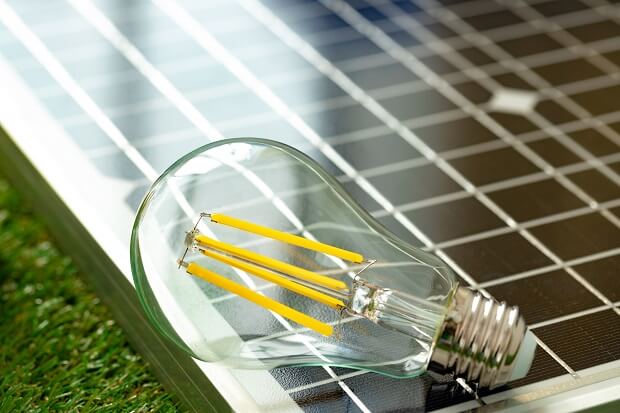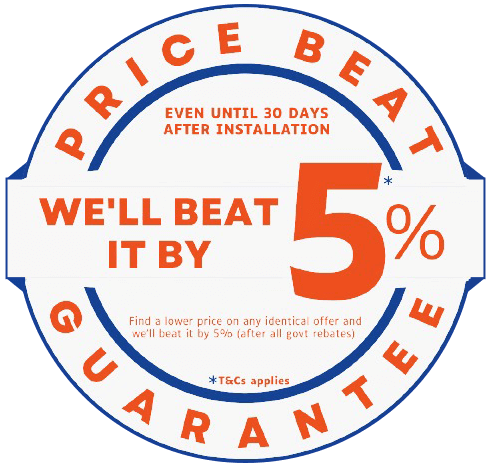Blog
 Oct31
Oct31
A Guide to Solar Power in Victoria
Australia’s energy sector is changing quickly. Solar, storage, and other renewable energy technologies are empowering individuals and families to become less reliant on large-scale fossil fuel producers to meet their electrical needs.
Already, hundreds of thousands of families are saving money on their electricity bills via solar power in Victoria. The cost of solar panels in Victoria is continuing to drop, and there are many solar and battery discounts available from the government to assist you get started.
The Cost Of Solar Panels In Victoria, Australia.
Depending on the size of the system, the cost of a conventional solar panels installation in Victoria can range from $3,900 to $8,300. While smaller solar panel system Melbourne (less than 2 kilowatts) should not cost more than $3,000, larger systems (10 kilowatts or more) can easily exceed $9,000.
What Percentage Of Victorian Homes Utilize Solar Energy?
According to a research for Solar consumption in Victoria, about one-third of the state’s entire electricity consumption is met by the solar energy produced by about 510,000 homes in Victoria.
The ‘Solar Homes Program’ was introduced by the Victorian government on 1 July 2019 to further incentivize the adoption of solar with an upfront subsidy. In order to reduce carbon emissions in the state, the government plans to provide assistance to 770,000 households making solar energy investments. Thus, it might be a good time to go solar if you haven’t done so previously.
Solar Rebates And Incentives In Victoria
Currently, Victorians can take advantage of some of the most substantial solar incentive programmes in all of Australia. There are a number of initiatives aimed at encouraging residential solar energy use, such as the Solar Homes Program and the Small-Scale Technology Certificates and Feed-in Tariffs (FiTs) that were briefly mentioned before.
Certificates For Emerging Technologies In Victoria:
A rebate on the initial cost of a solar panel system Melbourne can be obtained through the use of Small-scale Technology Certificates (STCs). Several certificates will be awarded to the customer who installs a renewable energy generator such as wind, hydro, or solar.
Save hundreds of dollars = Exchange STC’s under $40
The projected electricity output of your solar system over its lifetime will determine the number of STCs you obtain.
The Solar Homes Program in Victoria:
Solar Victoria claims that qualified homeowners can receive a rebate of up to $1,400 off the purchase price of a solar photovoltaic (PV) system. In some cases, homeowners might receive a rebate of up to $2,950 for installing a solar battery system, while others can receive up to $1,000 for installing a solar hot water system.
Solar Feed in Tariffs In Victoria, Australia:
If you have solar panels but no one to use the electricity, any excess energy will be sent to the public power grid. Every kilowatt-hour (kWh) of electricity exported by a solar user is met with a tiny refund known as a “feed-in tariff” (FiT).
Under current Victorian law, the minimum single rate feed-in tariff is 5.2c/kWh. Minimum time-of-use tariffs are as follows: 7.1 cents/kWh off-peak, 5.0 cents/kWh shoulder, and 6.9 cents/kWh peak.
Electricity generated by solar panels in Victoria, with feed-in tariffs offered by:
While Victoria has mandated minimum feed-in rates, many retailers will go above and beyond to secure your business due to the state’s highly competitive power market. You should look for a good feed-in tariff, but there are other factors, such as electricity usage rates, discounts, and contract terms, that should not be overlooked.
Australia’s Solar Batteries Industry:
The use of batteries has made it possible for homeowners to keep the extra energy produced by their solar panels at home rather than sending it back into the power system. The battery stores energy that can be utilized later, such as when the power is down or at night.
Households can save even more money by storing their solar energy for later use rather than sending it to the grid because the feed-in tariff is significantly lower (6.7-8c/kWh) than the rate you would pay for electricity usage (usually 20c/kWh or more).
Solar battery storage systems that run on solar energy aren’t exactly inexpensive. Smaller modular units can be purchased for roughly $2,000, while bigger batteries can cost anywhere from $8,000 to $12,000. The expense of a battery may be offset by the money saved in some circumstances. Keep in mind that certain batteries aren’t guaranteed to live that long, but generally speaking, it takes between 10 and 15 years for a battery to pay for itself.
Is Installing Solar Panels in Victoria Worthwhile?
Although solar energy systems can be costly up front, the money you save on electricity bills over time may more than pay for the system’s installation. As solar is becoming ever more inexpensive thanks to current rebates and incentives, including the Victorian Solar Homes Program, now is likely as good a time as any to get on board.
However, solar may not be the best option for many homes, particularly those who get little sunlight throughout the year and/or who currently have a good bargain on their electricity rates. With the continued decline in the cost of solar panels and batteries, however, going solar may still be a good idea in the long run. Get in touch with Sunburn Solar for solar power Victoria concerns.
© 2026 sunburnsolar.com.au. All rights reserved.

